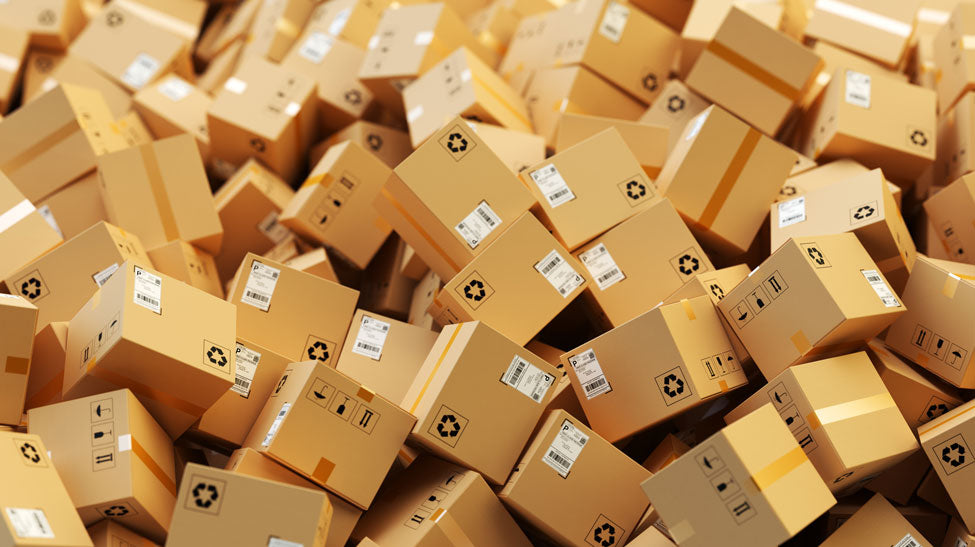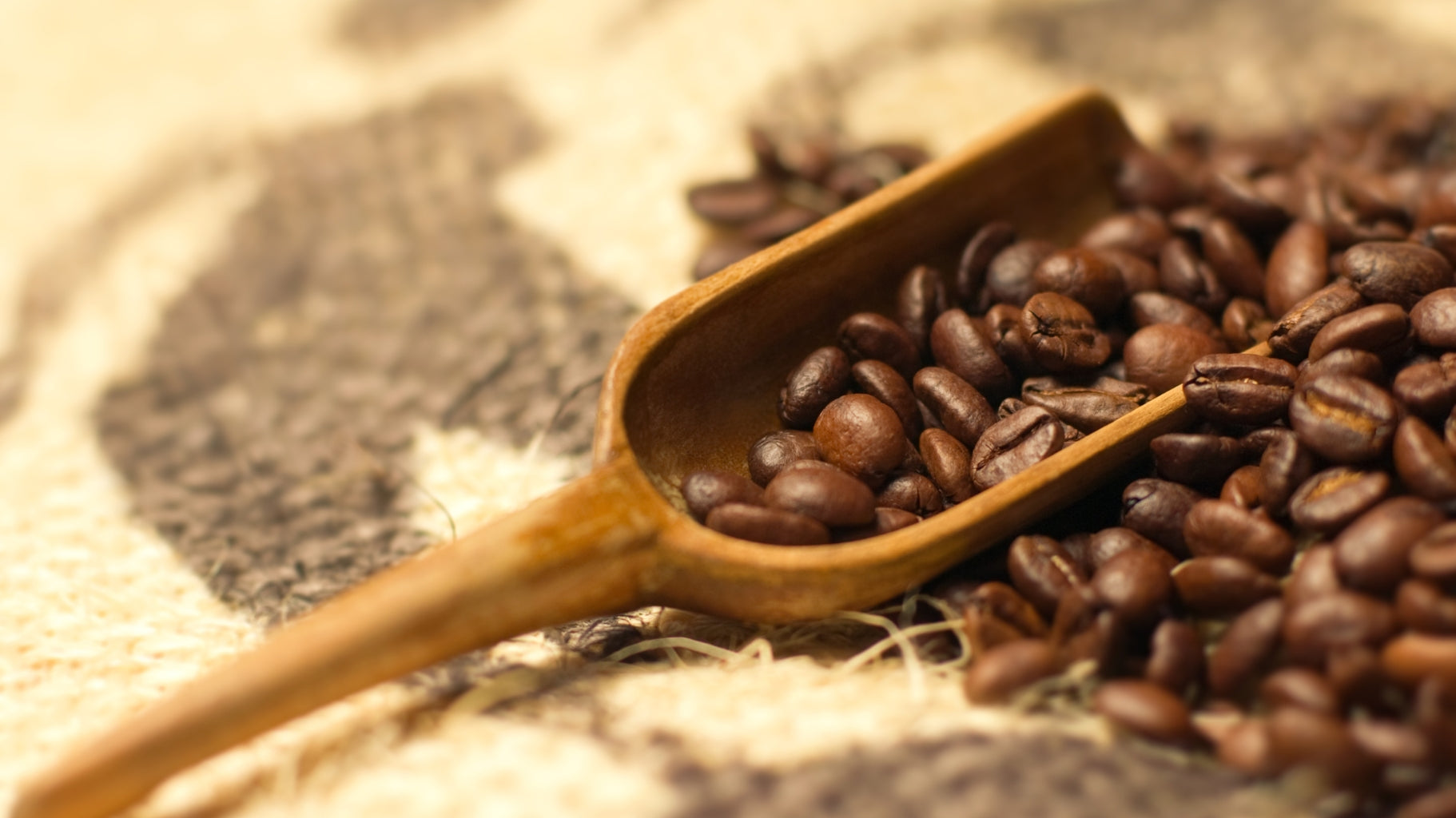How much coffee should you order?
When you understand how coffee ages, it's possible to work out an optimal ordering quantity and interval.
These days, there seems to be a strict set of rules for any dinner party - don't talk about religion, politics, finance, gender diversity, crypto or coffee!
Everyone knows a coffee expert - someone who bangs on about everything coffee like a walking encyclopedia.
Sadly, I confess to also being one of those annoying coffee nerds.
But like many topics and domains, with so many commentators or self-appointed experts, there is too much misinformation and complete nonsense on the internet.
Let's keep it simple.
Every coffee consumer needs to understand four essential pieces of information about roasted coffee freshness; it's easy to comprehend.
First, - don't store roasted coffee beans in the fridge.
Second - freshly roasted coffee is only at its peak for up to 60 days (some coffees will last for a while). It also depends upon the temperature as warmer climates reduce the peak period by up to half, but cooler climates (20 degrees C) allow up to 60 days at most.
3rd rule is don't buy pre-ground coffee. Don't be shocked or affronted.
Even our fresh roasted beans, straight off the roast, ground immediately and sealed in minutes, are stale inside the sealed pack 20 times faster than whole beans.
The 4th piece of advice is controversial and still open for debate. In many articles we have published over the last 16 years on this topic, we previously argued strongly against freezing roasted coffee beans. However, today, the jury is still out on whether freezing is good or bad. Please do your experiments.
Rather than bore the crap out of everyone with technical jargon, we advise avoiding freezing fresh roasted coffee beans unless you live in a constantly hot environment (over 30 deg C).
The reason why we have changed our stance about freezing has been that during the last five years, there has been an increase in the use of "frozen coffee" at barista championship events by contestants.
Yes, it's a thing - competitors freeze their coffee for transportation to the event and to ensure the coffee works as a known quantity precisely as they had used in their training exercises.
Remember here that barista competition entrants train by pulling many thousands of shots, so they must eliminate or control all variables to re-produce the desired conditions.
Freezing coffee is a personal choice - make your mind up about whether it's beneficial, and please don't rely upon something you read on the internet.
Another critical piece of important information about coffee performance is how long coffee remains good (or best).
A peak or optimal period is the focal point of our article to help you develop some basic calculations on average consumption and determine how much coffee to purchase in an order.
A reminder - fresh roasted coffee's rule of 3's
Coffee experts often recite the simple rule of 3's
Ground coffee - 3 minutes, roasted coffee - 3 weeks, raw coffee - 3 years.
Now, let's take a more precise look at those rules of 3.
Raw coffees may last forever, but in Australia's harsh climate, 12 months can strip 25-50% of the quality of a high-grade green coffee.
Mostly, this is acidity and vitality.
We have been lucky to have green coffees for more than four months in our warehouse, such is the rapid turnover.
After over a couple of years, most raw coffees are dried out and present a severe fire risk if roasted, even if stored in liners and at constant 20 deg C temperatures.
For ground coffee, everyone knows the delightful sensation caused by grinding freshly roasted coffee beans.
When grinding whole coffee beans are ground, particles explode in an aromatic symphony.
This initial contact with oxygen creates high levels of aroma as you effectively break open the cell structure of a whole coffee bean into thousands of tiny particles.
These tiny particles, when exposed to rich levels of oxygen, the process of rapid staling commences.
The smaller the particle, the faster the staling and hence the short time frame applies.
In realistic terms, ground coffee has around 15 minutes of oxygen exposure.
Although I don't use ground coffee in my espresso if it's been sitting for more than 15 minutes, I don't tolerate mediocre.
It depends upon your brew method for the use of ground coffee.
Your individual or personal tolerance for whether the fresh coffee tastes better after time will be different to mine.
Some brew methods, such as espresso, are susceptible to stale ground coffee.
It's why all good cafes will always grind on demand for each beverage order.
The better restaurants will also purge the grinder if unused for a long while because they know their equipment suffers from grind retention.
Stale ground coffee (like what you find in the supermarkets) will need help to generate basic levels of crema, body, aroma, flavour and sweetness in espresso beverages.
Other brew methods, such as percolator and plunger, may be less affected by oxidized ground coffee as the contact time for the water with the ground coffee is much longer.
For roasted whole bean coffee, the period it will remain optimal depends upon some variables -
- Roast depth - darker roasted coffee ages faster. Use the coffee sooner, as it does not last as long as medium or light roasts.
- Ambient storage temperature includes the temperatures of the roasted coffee beans during transit.
- Higher ambient temperature dramatically accelerates oxidization, or it can lead to low levels of baking the roasted coffee beans inside the packs, resulting in a degraded quality. Heat stress for roasted coffee happens during summer in Australia, mainly when transported.
- It is also essential to store the coffee correctly after opening a pack. Zip locks are complete nonsense - they don't provide any adequate freshness barrier as the vital compounds of freshly roasted coffee beans will "leach" through the plastics used in zip locks via an effusion process (same as why you can't put oil in a plastic bag).
- Storing the contents of an opened pack of coffee in a metal, ceramic or glass jar away from sunlight and heat but not in the fridge or freezer is best.
- It is also possible to carefully fold over the corner of an opened coffee bag many times and with a bull clip often used to hold large numbers of pages together.
- Certain coffee types can last longer in the optimal peak period than others. Monsoon Malabar is one such coffee that can take up to 2 or more weeks to reach its peak and hold a decent quality level for more than six weeks.
- When roasted well, Sumatrans can also take longer to develop and hold a quality level over more than a month.
For most roasted whole bean coffees, the peak periods typically start from around 5 to 12 days of the roast date and run until approximately 30 - 60 days from the roast date.
Some coffees may start to degrade from 18 days.
There is an explanation for those needing clarification as to why the period starts many days after roasting.
Freshly roasted coffees continue to develop for a while after roasting. There are still gases to release from the roasting process with pressure trapped in the coffee.
It is also why freshly roasted coffees are unstable and gassy, and the flavours still need to develop to their peak levels fully.
Some coffees need up to 12 days to develop post-roast. Again, this depends upon ambient temperatures and storage integrity.
The other point to note is that many people have varying ideas on what constitutes quality - some are less fussy, happy to order in bulk and drink coffee for a couple of months whilst delighting in the recently arrived packs and enduring the declining quality from older bags. That's fine, and they make their own choices.
Yet other coffee enthusiasts are more particular and demand coffee less than seven days old, or to rewrite that another way, they may think that coffee older than seven days from roasting is now stale.
Either way, we easily cater for all types as our product is always super fresh when it leaves our roastery, allowing you to experience the coffee at its peak.
We roast every morning, pack during the day and ship in the afternoon. It's a cycle we have optimized for 16 years. Our roasted coffees arrive to customers in the freshest and highest quality possible; you can't get that in most retail or supermarket stores.
You can also read our Light, Medium and Dark roasting styles article.




